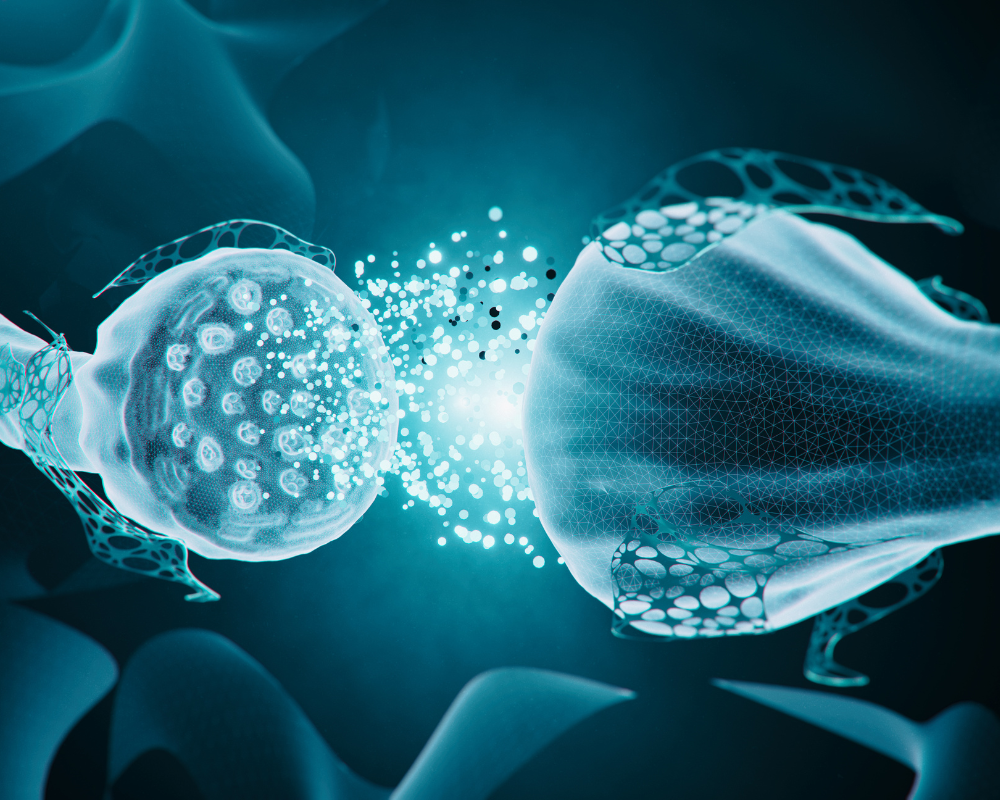In the ever-evolving field of neuroscience, neurotransmitters occupy a central role. They are the chemical messengers responsible for transmitting signals between neurons in the brain, thereby regulating our mood, behavior, cognition, and motor control. To fully appreciate the wonders of the human brain and to delve into the treatment possibilities for neurological and psychiatric disorders, it’s essential that we first understand the workings of these crucial molecules.
A Deeper Look into Neurotransmitters
Neurotransmitters are synthesized and stored in what we call the presynaptic neuron, which is the neuron sending the signal. An action potential reaching this presynaptic neuron instigates the release of neurotransmitters into the synaptic cleft – the small space that separates the presynaptic and postsynaptic neurons.
The Process of Signal Transmission
After neurotransmitters have been discharged into the synaptic cleft, they bind to receptors located on the postsynaptic neuron, which is the neuron on the receiving end of the signal. This binding can result in either the activation or inhibition of the postsynaptic neuron, and this is largely dependent on the type of receptor and neurotransmitter involved.
The role of neurotransmitters can be broadly divided into two categories:
- Excitatory Neurotransmitters: These, such as glutamate, activate the postsynaptic neuron and augment its chances of firing an action potential.
- Inhibitory Neurotransmitters: These, like GABA, inhibit the postsynaptic neuron, thus reducing its probability of firing an action potential.
The Role of Reuptake in Regulating Neurotransmitters
Reuptake is the process by which neurotransmitters are reabsorbed by the presynaptic neuron after they have been released into the synapse to transmit a neural impulse. Reuptake is necessary for normal synaptic physiology because it allows for the recycling of neurotransmitters and regulates the level of neurotransmitter present in the synapse, thereby controlling how long a signal resulting from neurotransmitter release lasts. Because neurotransmitters are too large and hydrophilic to diffuse through the membrane, specific transport proteins are necessary for the reabsorption of neurotransmitters.
The main objective of a reuptake inhibitor is to substantially decrease the rate by which neurotransmitters are reabsorbed into the presynaptic neuron, leaving a net gain in the concentration of neurotransmitter in the synapse. This increases the probability and frequency of neurotransmitter binding to postsynaptic neurotransmitter receptors, which can have therapeutic effects in mental health disorders. For example, selective serotonin reuptake inhibitors (SSRIs) are a class of antidepressant medications that work by blocking the reuptake of serotonin, thereby increasing the concentration of serotonin in the synapse and improving mood. Similarly, norepinephrine-dopamine reuptake inhibitors (NDRIs) are a class of medications that block the reuptake of norepinephrine and dopamine, which can improve attention and concentration in individuals with attention-deficit/hyperactivity disorder (ADHD).
Overall, reuptake is essential for normal synaptic physiology because it allows for the recycling of neurotransmitters and regulates the level of neurotransmitter present in the synapse. Reuptake inhibitors can be used to increase the concentration of neurotransmitters in the synapse, which can have therapeutic effects in mental health disorders.
Imbalances in Neurotransmitters Can Impact Mental Health
Imbalances in neurotransmitters can impact mental health in various ways. Here are some of the potential impacts:
Depression: Reduced serotonin levels are believed to have a role in cases of depression, and low levels of neurotransmitters like dopamine and norepinephrine have also been linked to an increased risk of depression.
Anxiety: Imbalances in neurotransmitters like glutamate, histamine, and serotonin have been associated with anxiety and panic attacks.
Mood swings: Imbalances in neurotransmitters can lead to irregular sleep cycles, digestion, mood, concentration, and appetite, which can result in mood swings.
Addiction: Imbalances in neurotransmitters like dopamine, which plays a central role in addiction, can lead to addictive behaviors.
Cognitive issues: Imbalances in neurotransmitters can lead to cognitive issues such as poor memory, attention, and focus.
Other mental health issues: Neurotransmitter imbalances have been linked to other mental health issues such as schizophrenia, ADHD, eating disorders, fibromyalgia, obsessions, compulsions, and chronic pain.
Overall, imbalances in neurotransmitters can have a significant impact on mental health. They can lead to depression, anxiety, mood swings, addiction, cognitive issues, and other mental health issues.
innovative treatment approach that aims to rectify neurotransmitter imbalances is TMS Therapy. This non-invasive procedure uses magnetic fields to stimulate nerve cells in the brain, with the potential to improve symptoms of depression and other mental health conditions.
The Ongoing Research and Future Potential
Neurotransmitters, with their pivotal role in regulating brain function and signal transmission between neurons, are the heart of understanding brain function and dysfunction. As we continue to learn and research, it is likely that we’ll uncover even more about the role neurotransmitters play in brain function and disease.
Our exploration of these microscopic marvels opens up the potential for understanding neurological and psychiatric disorders better and in turn, devising more effective treatment modalities such as TMS Therapy. The future of neuroscience, filled with promise, beckons, and our journey of understanding continues.
Sources:
Bear, M. F., Connors, B. W., & Paradiso, M. A. (2020). Neuroscience: Exploring the Brain (4th ed.). Philadelphia: Wolters Kluwer.
Kandel, E. R., Schwartz, J. H., & Jessell, T. M. (2021). Principles of Neural Science (6th ed.). New York: McGraw-Hill.
Nestler, E. J., Hyman, S. E., & Malenka, R. C. (2021). Molecular Neuropharmacology: A Foundation for Clinical Neuroscience (4th ed.). New York: McGraw-Hill.
Purves, D., Augustine, G. J., & Fitzpatrick, D. (2021). Neuroscience (6th ed.). Sunderland, MA: Sinauer Associates.
NIMH. (2022). Brain Stimulation Therapies. National Institute of Mental Health. Retrieved from https://www.nimh.nih.gov/health/topics/brain-stimulation-therapies.
Mayo Clinic. (2022). Transcranial Magnetic Stimulation. Retrieved from https://www.mayoclinic.org/tests-procedures/transcranial-magnetic-stimulation/about/pac-20384625.
Understanding the Definition of Reuptake – Verywell Mind
Reuptake – ScienceDirect Topics
What Are Reuptake Inhibitors and How Do They Work? – Medical News Today
Neurotransmitters and Mental Health: Understanding the Impact
Can a Neurotransmitter Imbalance Be Causing Your Mood Problems?
Chemical Imbalances and Depression
Imbalanced Neurotransmitter Levels and Their Impact on Health
A Functional Medicine Approach to Understanding Neurotransmitters 101




